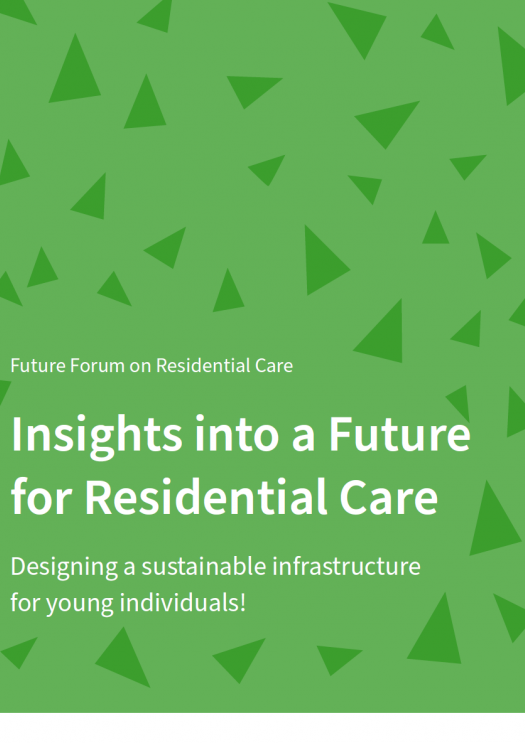Insights into a Future for Residential Care

Future Forum on Residential Care
The following expertise paper is based on the work and results of a federal initiative in Germany called “Future Forum on Residential Care”. Within the framework of the Future Forum on Residential Care, central development needs and structural features of successful residential care were elaborated and publicly discussed. For this purpose, knowledge, assessments and positions of professionals and residents, practitioners and academics were compiled and discussed. Funded by the German Federal Ministry for Family Affairs, Senior Citizens, Women and Youth ( BMFSFJ ), the initiative was organised and moderated by Internationale Gesellschaft für erzieherische Hilfen ( IGfH ) with a duration from 2019 to 2021 (www.zukunftsforum-heimerziehung.de). As authors and participants of the intiative, we think that this paper highlights fundamental requirements for the advancement of residential child and youth care in any country. Thus, we hope it also proves fruitful and interesting within trans- and international discourses.
Building on numerous discussions, participatory workshops, documented forums and expert reports that were held and elaborated in the context of Future Forum on Residential care, the paper addresses key issues and deepens the following future impulses for the further development of residential care:
1. Ensuring that the fundamental rights of young individuals and the social rights of young individuals and their parents are upheld!
2. Residential care as a place to enable young individuals to participate in the social and institutional life of growing up without discrimination!
3. Residential care as a place that not only ensures the upbringing of young individuals but also enables multifaceted (formal, informal and non-formal) education processes (to equalize opportunities)!
4. Re-structuring residential care settings into inclusive spaces for and with young individuals with disabilities!
5. Strengthening self-advocacy in residential care!
6. Clarifying the social responsibility of the organisational and service structures!
7. Recognising the development of skilled workers as a field of action for professional policy!
8. Systematically improving knowledge as well as qualitative and quantitative data through empirical research on residential care! 9. Demanding social recognition of residential care!
